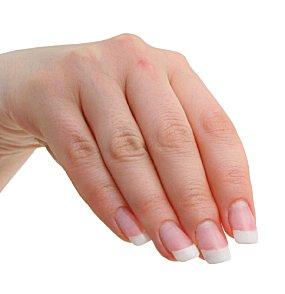
Some young brides, particularly those who aren't inclined to follow traditions simply because they exist, may ask "Do I need an engagement ring?" The answer isn't a simple yes or no, and each couple should decide whether or not to get a ring based on their individual beliefs and preferences.
Why Not to Get an Engagement Ring
There are many reasons why a couple would choose not to get an engagement ring depending on their personal circumstances, including:
- Financial. Even inexpensive rings can put a dent in a couple's budget, particularly if they are also purchasing a house, relocating, finishing school, or supporting a family. Instead of settling for a smaller engagement ring, many couples initially forgo the ring to concentrate on more practical financial matters.
- Professional. Women who frequently work with their hands or who may need to wear gloves, such as doctors, dental hygienists, and other medical and personal health professionals, may not be able to wear an engagement ring without interference. Instead of choosing a design they don't care for or having a ring gather dust in a jewelry box because it cannot be worn, they simply don't have one.
- Time. Couples who are planning a long engagement may choose to delay purchasing an engagement ring to avoid lengthy explanations about why the wedding isn't happening as quickly as many people would expect. In these cases, a promise ring may be a more appropriate choice, or they simply don't choose a ring immediately.
- Style. Some women simply prefer not to wear rings no matter what the tradition. If that is the case, no bride-to-be should feel obligated to choose an engagement ring just because it is expected. Such acquiescence to peer pressure is not a sign of a woman who is ready to make long-term decisions about things like marriage.
Regardless of the reason, wearing an engagement ring is not a requirement for marriage or any long-term, committed relationship. While engagement rings do have a lengthy history and generous amounts of symbolism, beginning a new phase of a loving relationship is the perfect time to start new, personal traditions.
Dealing With Family and Friends

Brides-to-be that choose not to wear engagement rings may face strong opposition, confusion, and pleading from family and friends who want to see the ring or wonder about the couple's commitment if no ring has been exchanged. Dealing with close relationships while avoiding hurt feelings and misunderstandings can be difficult, but it is not impossible.First, always be willing to explain why there is no engagement ring. Good friends and understanding family members will have an open mind, and once knowing the reasoning behind the decision, are likely to appreciate the logic and forethought. It may become tedious to offer the explanation over and over to different individuals, but patience is always necessary when breaking traditions that many people consider sacred. Giving the intricate details of the decision is not necessary, but providing enough information to back up the choice will help forestall additional questions and badgering. Patience will also help couples understand the apprehensions family members and friends may have when there is no engagement ring. Financial assistance, heirloom rings, or other alternatives may be offered, but the couple should not feel obligated to accept even well-meaning solutions simply to please other people.
Similarly, a couple should not accept derogatory comments about their readiness for marriage, the groom-to-be's financial status, or their personal level of commitment because they choose not to have an engagement ring. Whether a couple chooses to wear a symbol of their relationship or not is irrelevant; such unsupportive behavior should not be tolerated.
Alternatives for Couples Who Don't Want Engagement Rings
Depending on their circumstances, a couple may want to choose an alternative to a traditional engagement ring. Necklaces, earrings, or other diamond jewelry may be suitable both for personal preferences and financial means. Gemstone rings are colorful options for a woman that still wants a ring but isn't interested specifically in a diamond, while eternity bands or plain wedding bands may be more suitable.
A couple could also choose a completely different item so represent their relationship: matching tattoos, watches, or a common purchase such as furniture or even a home can easily substitute for an engagement ring and therefore become even more meaningful for the couple.
Avoiding Regrets
Just as couples may question why to have an engagement ring at all, they may also question why to consider alternatives. Even couples that initially eschew tradition may later decide they want to have a time-honored symbol of their relationship, but they cannot go back and change the decisions they initially made. Having an alternative at hand will help bridge the gap with fewer regrets; after all, that first treasured item - whether it is a ring or some other token - will always symbolize the couple's love and commitment.







